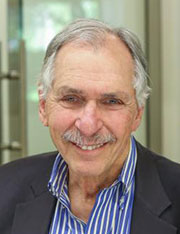
Changes in Achievement Inequality in Brazil, 2007-2017
Since student achievement is related to educational attainment and to adult earnings, there is considerable interest in within-country achievement gaps between different social class groups and how they change over time. In this paper, analyze academic achievement gaps over a ten-year period in Brazil. Our results suggest that social class inequality in public school student achievement on the SAEB national test increased significantly among Brazilian 5th graders in the period 2007-2017, and that all of this increase was before 2013--indeed, most between 2011 and 2013. To the contrary, social class achievement inequality among 9th graders barely increased in 2007-2017, and that small increase appears to have occurred mainly in earlier years. In addition to describing these changes, we attempt to understand whether increased achievement inequality among 5th graders were the result of increased inequality among municipalities, schools, or mainly within schools.
About Martin Carnoy
Martin Carnoy is Vida Jacks Professor at the Stanford University School of Education. He has also worked as consultant to the World Bank, the Inter-American Development Bank, the Asian Development Bank, UNESCO, the Organization for Economic Cooperation and Development (OECD), UNICEF, and the International Labor Organization. Carnoy is a fellow of the National and International Academy of Education and the former president of the Comparative and International Education Society. Much of his work is comparative and international, and investigates the impact of global economic and social change on the way educational systems are organized. He has authored more than thirty books, including the acclaimed “Cuba's Academic Advantage.” Carnoy and colleagues from South Africa and Botswana have recently published an innovative study on primary schooling in southern Africa, The Low Achievement Trap. He is currently completing a book on higher educational change in the large developing countries—Brazil, Russia, India, and China—known as the BRICs. He first did research in Brazil in the 1960s as part of a four-year project on the Latin American free trade area at the Brookings Institution and University of São Paulo. Carnoy has lectured at Brazilian universities, including the Federal University of Bahia in 1985. He has done extensive studies on Brazilian education and policies such as the Education Development Plan (PDE, Plano de Desenvolvimento da Educação).

